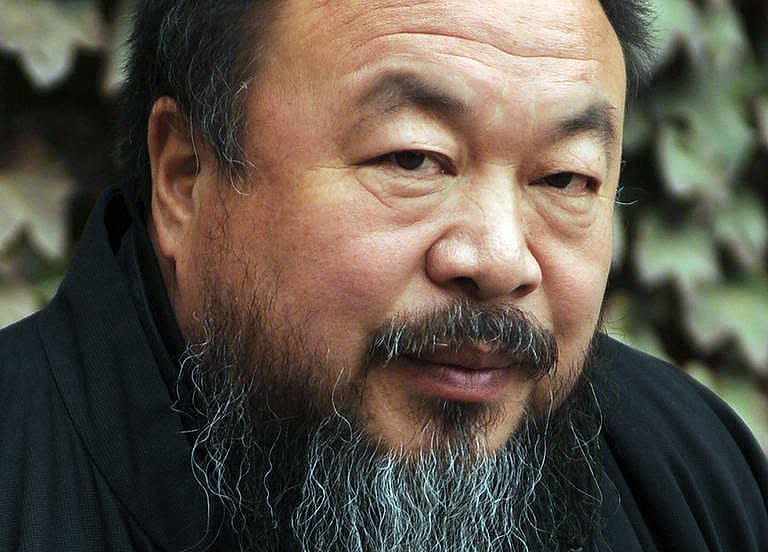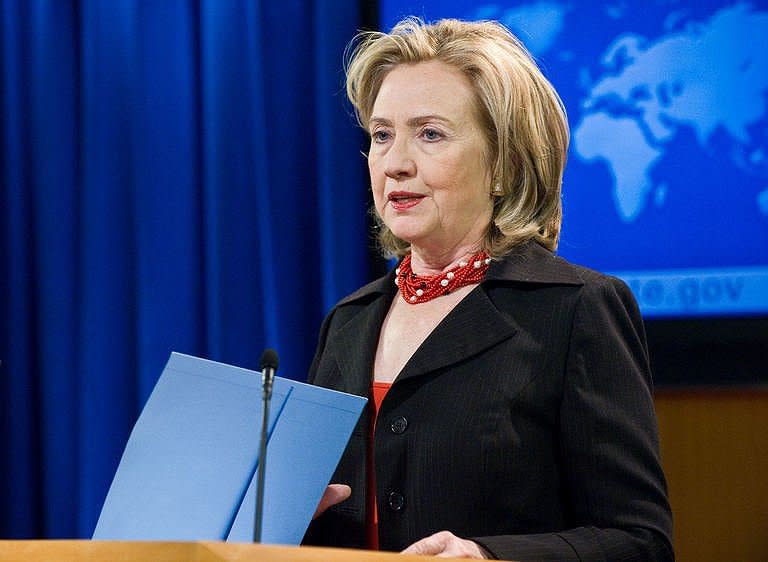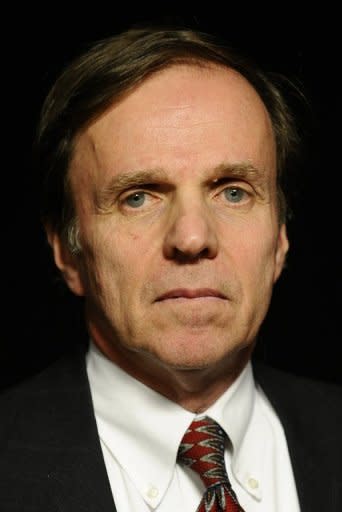Clinton urges China to free activists
US Secretary of State Hillary Clinton urged China to free dozens of government critics rounded up this year including a prominent artist and said Beijing's rights record was worsening. The State Department's annual survey said China last year stepped up efforts to rein in activists, the media and free Internet access and pursued "severe repression" in the Tibet and Xinjiang regions. Presenting the report on Friday, Clinton voiced alarm at developments in 2011 as China -- apparently alarmed over a pro-democracy wave of protests sweeping the Middle East -- launches its most sweeping crackdown on dissent in years. "In China, we've seen negative trends that are appearing to worsen in the first part of 2011," Clinton told reporters. "As we have said repeatedly, the United States welcomes the rise of a strong and prosperous China," she said. "However, we remain deeply concerned about reports that since February, dozens of people including public-interest lawyers, writers, artists, intellectuals and activists have been arbitrarily detained and arrested." She mentioned the case of Ai Weiwei, an outspoken artist who helped design the Bird's Nest Olympic Stadium for the 2008 Beijing Games. He was detained on Sunday for unspecified "economic crimes." "Such detention is contrary to the rule of law, and we urge China to release all of those who have been detained for exercising their internationally recognized right to free expression and to respect the fundamental freedoms and human rights of all of the citizens of China," Clinton said. In an unusual public criticism, a UN human rights panel on Friday also voiced concern at China's treatment of activists and lawyers, saying that so-called enforced disappearances were a crime under international law. The UN Working Group on Enforced or Involuntary Disappearances expressed "serious concern" at the disappearances, saying that they represented "the continuation of a disturbing trend in the suppression of dissidents" in China. China has warned foreign nations not to "interfere" over Ai's case. China often bristles at the annual State Department report on human rights, hitting back that the United States also has concerns it needs to address. Michael Posner, the assistant secretary of state for democracy, human rights and labor, said that the State Department would welcome reading China's account of the situation in the United States. "We are very open to the notion that people in this country have (the right) to be critical of what we do, and we engage them in that criticism," he told reporters. Posner said that Kurt Campbell, the assistant secretary of state for East Asia, was raising human rights among other issues on his current visit to China. In the latest report, the State Department said that many Chinese -- possibly tens of thousands -- were involuntarily committed to psychiatric hospitals including members of the Falungong, the banned spiritual movement. China imposed tight restrictions on citizens' rights to assemble, travel and practice their religions and "continued its severe cultural and religious repression of ethnic minorities" in Xinjiang and Tibetan areas, it said. The report quoted a Human Rights Watch report saying that hundreds of men from Xinjiang's indigenous Uighur community went missing following 2009 clashes with China's majority Han ethnicity. China also denied passports or restricted travel to many ethnic Tibetans, part of a clampdown since mass protests in the predominantly Buddhist region in 2009, the study said. The report comes one month before Clinton and Treasury Secretary Timothy Geithner are due to meet in Washington with senior Chinese leaders for the annual Strategic and Economic Dialogue, a key forum between the world's two largest economies. Clinton's comments come after criticism from activists at the beginning of her tenure, when she said that human rights concerns with China would not interfere with cooperation on other issues such as the global economy.




